
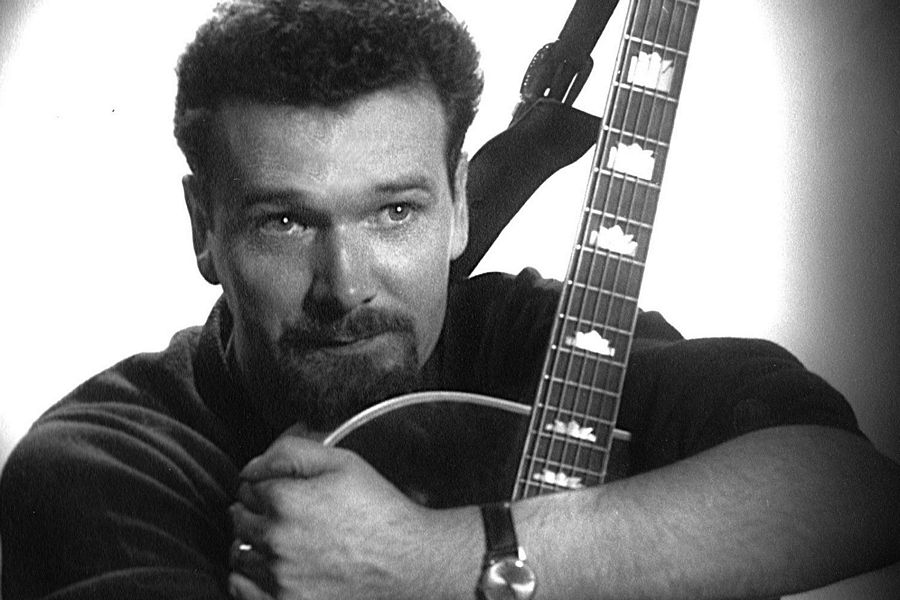
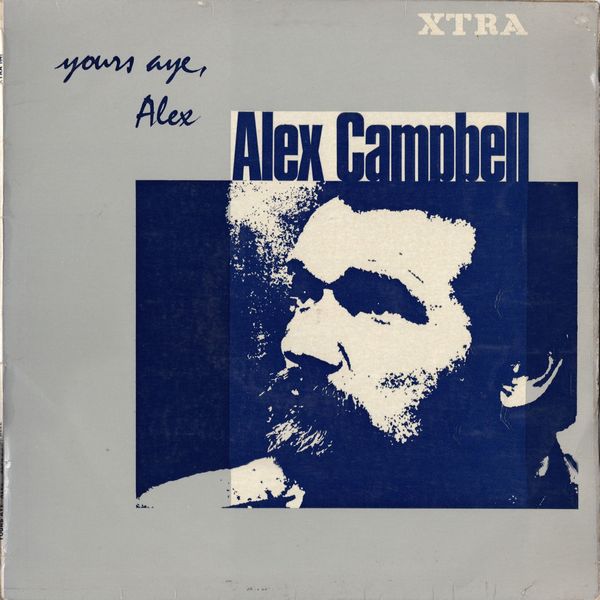 |
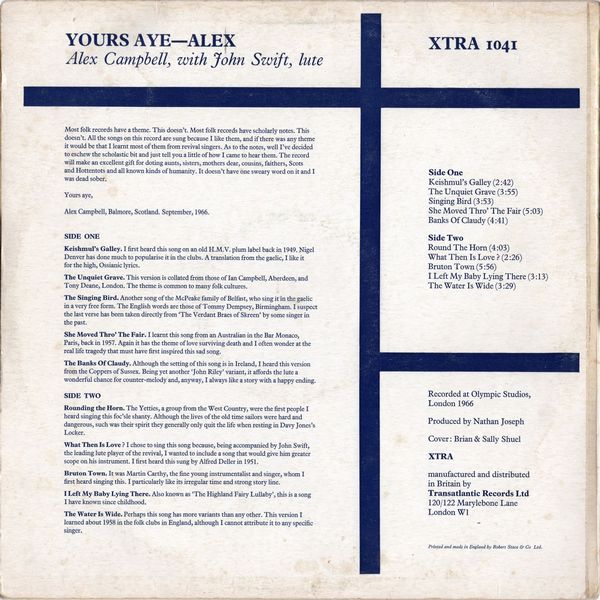
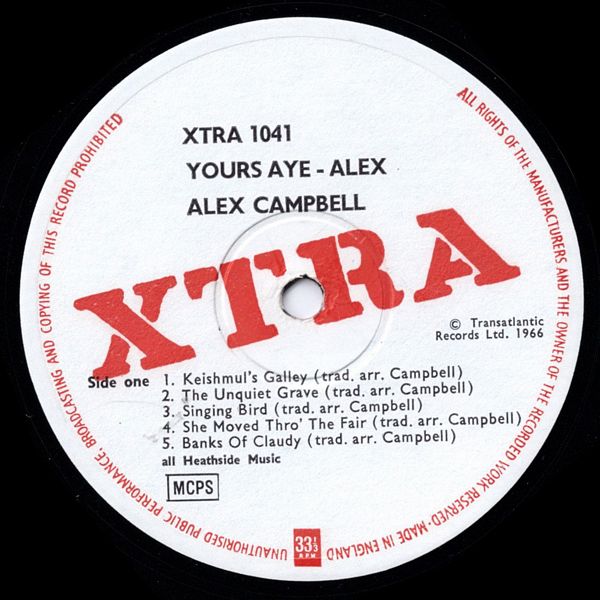
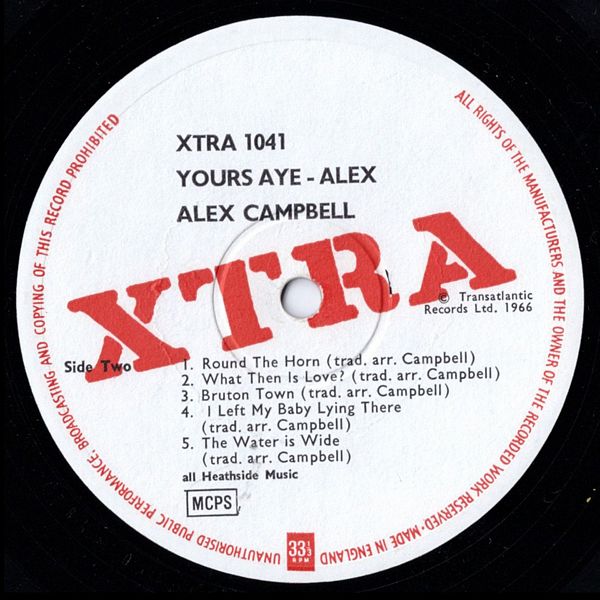
|
Sleeve Notes
Most folk records have a theme. This doesn't. Most folk records have scholarly notes. This doesn't. All the songs on this record are sung because I like them, and if there was any theme it would be that I learnt most of them from revival singers. As to the notes, well I've decided to eschew the scholastic bit and just tell you a little of how I came to hear them. The record will make an excellent gift for doting aunts, sisters, mothers dear, cousins, faithers, Scots and Hottentots and all known kinds of humanity. It doesn't have one sweary word on it and I was dead sober.
Yours aye,
Alex Campbell, Balmore, Scotland. September, 1966.
Keishmul's Galley — I first heard this song on an old H.M.V. plum label back in 1949. Nigel Denver has done much to popularise it in the clubs. A translation from the gaelic, I like it for the high, Ossianic lyrics.
The Unquiet Grave — This version is collated from those of Ian Campbell, Aberdeen, and Tony Deane, London. The theme is common to many folk cultures.
The Singing Bird — Another song of the McPeake family of Belfast, who sing it in the gaelic in a very free form. The English words are those of Tommy Dempsey, Birmingham. I suspect the last verse has been taken directly from 'The Verdant Braes of Skreen' by some singer in the past.
She Moved Thro' The Fair — I learnt this song from an Australian in the Bar Monaco, Paris, back in 1957. Again it has the theme of love surviving death and I often wonder at the real life tragedy that must have first inspired this sad song.
The Banks Of Claudy — Although the setting of this song is in Ireland, I heard this version from the Coppers of Sussex. Being yet another 'John Riley' variant, it affords the lute a wonderful chance for counter-melody and, anyway, I always like a story with a happy ending.
Rounding the Horn — The Yetties, a group from the West Country, were the first people I heard singing this foc'sle shanty. Although the lives of the old time sailors were hard and dangerous, such was their spirit they generally only quit the life when resting in Davy Jones's Locker.
What Then Is Love? — I chose to sing this song because, being accompanied by John Swift, the leading lute player of the revival, I wanted to include a song that would give him greater scope on his instrument. I first heard this sung by Alfred Deller in 1951.
Bruton Town — It was Martin Carthy, the fine young instrumentalist and singer, whom I first heard singing this. I particularly like its irregular time and strong story line.
I Left My Baby Lying There — Also known as 'The Highland Fairy Lullaby', this is a song I have known since childhood.
The Water Is Wide — Perhaps this song has more variants than any other. This version I learned about 1958 in the folk clubs in England, although I cannot attribute it to any specific singer.